★★★★
“Siedem”

 The above is the Polish for “seven”, and in the first half-hour, you’ll be forgiven for thinking that’s what you’re watching: a Polish knock-off of David Fincher’s Se7en. Homicide cop Helena Rus (Kożuchowska) is struggling to come to terms with life, after her boyfriend is killed by a drunk-driver and, for political reasons, the criminal is allowed to go free. A welcome distraction comes in the shape of a series of ritualistic murders: every day at 6 pm, a body turns up on the streets of Wroclaw. The victims have been killed in strange and unusual ways – the first, for example, is sewn inside a cow-hide, which shrinks as it dries, crushing the victim to death. Each has a word branded into their flesh, such as “Degenerate”.
The above is the Polish for “seven”, and in the first half-hour, you’ll be forgiven for thinking that’s what you’re watching: a Polish knock-off of David Fincher’s Se7en. Homicide cop Helena Rus (Kożuchowska) is struggling to come to terms with life, after her boyfriend is killed by a drunk-driver and, for political reasons, the criminal is allowed to go free. A welcome distraction comes in the shape of a series of ritualistic murders: every day at 6 pm, a body turns up on the streets of Wroclaw. The victims have been killed in strange and unusual ways – the first, for example, is sewn inside a cow-hide, which shrinks as it dries, crushing the victim to death. Each has a word branded into their flesh, such as “Degenerate”.
To help her, a profiler is sent from the capital, Warsaw: the equally brusque Magda Drewniak (Widawska), who quickly identifies that the perpetrator is replicating the titular incidents – Wroclaw was previously known as Breslau. In those, the ruler cleaned up town by selecting a criminal each day for gruesome public execution. So far, so Se7en. But just as we were settling in comfortably, the film hurls an absolute doozy of a twist at the viewer, and from then on, all bets are off. It becomes less of a whodunnit, and more a whydunnit, with the killer having a very specific agenda, which might be considerably closer to Helena than is comfortable for her.
Director Vega was previously seen here with Pitbull: Tough Women and Women of Mafia, but has stepped up his game a notch with this. Not least, in the spectacularly grisly nature of proceedings, with some disturbingly realistic deaths and corpses: you will need a strong stomach for a number of moments. However, both Helena and Magda make for excellent characters. The former is perpetually soft-spoken, yet takes absolutely no shit from anyone, despite possessing arguably the worst hair-cut in cinema history. And Magda’s impeccable knowledge of subjects from Polish history to coma recovery, makes her a force to be reckoned with as well. However, they’re facing a killer who is always one step ahead of them, and whose plan will come right into police headquarters.
It ends up being a little Se7en and a little Dragon Tattoo, yet has more than enough of its own style and content to stand on its own terms. It does perhaps stretch belief in some of the elements: a couple of the killings feel like they would require a road-crew to assemble, rather than being the work of a single person. However, in Helena Rus, we’ve got one of the most uncompromising heroines to come out of the European noir scene, and I’d love to see more of her cases in future – even if the ending makes that… somewhat uncertain, shall we say. Just be prepared for a film which is short on genuinely likable characters, and long on carnage. In particular, I recommend having a shot of vodka at hand for the guillotine scene.
Dir: Patryk Vega
Star: Małgorzata Kożuchowska, Daria Widawska, Tomasz Oświeciński, Maria Dejmek





 Within about two minutes of starting this, I realized I had made a terrible mistake, and was watching something barely reaching the amateur level of film production. Still, I soldiered on – albeit for some loose definition of “soldiered” – until the bitter end, mostly so I could issue an informed warning about this to any prospective viewers. Maxine (Mitchell) is rather upset when she discovers her boyfriend, music video producer Lance (Watts) has been cheating on her with Lana (Bryant). Mind you, she’s clearly a bit unhinged already: for example, telling him she’s pregnant when she isn’t. So it’s not much of a surprise when her reaction to his two-timing is to kidnap Lance, tie him up in her basement and submit him to various indignities, along with seeking revenge on Lana. Which, apparently, includes sleeping with her father (Walker).
Within about two minutes of starting this, I realized I had made a terrible mistake, and was watching something barely reaching the amateur level of film production. Still, I soldiered on – albeit for some loose definition of “soldiered” – until the bitter end, mostly so I could issue an informed warning about this to any prospective viewers. Maxine (Mitchell) is rather upset when she discovers her boyfriend, music video producer Lance (Watts) has been cheating on her with Lana (Bryant). Mind you, she’s clearly a bit unhinged already: for example, telling him she’s pregnant when she isn’t. So it’s not much of a surprise when her reaction to his two-timing is to kidnap Lance, tie him up in her basement and submit him to various indignities, along with seeking revenge on Lana. Which, apparently, includes sleeping with her father (Walker).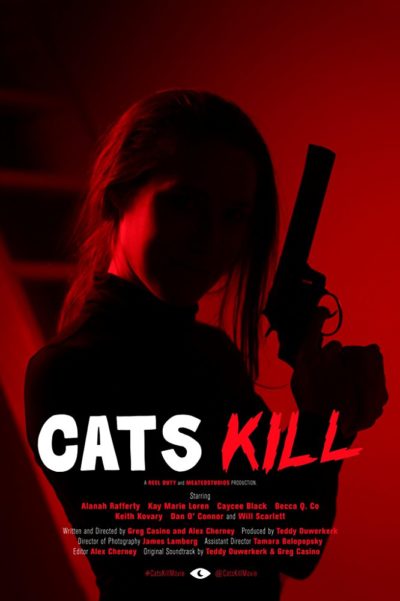 It’s quite a feat for a film which runs a crisp 67 ½ minutes to outstay its welcome, so… Well done? The problem is mostly that far too much time is wasted on the set-up, introducing us – in quite excruciating detail – to characters in whom we have little or no interest. These would be the friends who decide to spend a weekend in upstate New York, unaware they are about to cross paths with a pair of bored locals who have decided to alleviate the tedium by going on a killing spree. When one of them gets cold feet, however, it’s left up to Cat (Rafferty) to follow through on the original plan, which she does with some enthusiasm. Just a pity this doesn’t happen until roughly the final twenty minutes.
It’s quite a feat for a film which runs a crisp 67 ½ minutes to outstay its welcome, so… Well done? The problem is mostly that far too much time is wasted on the set-up, introducing us – in quite excruciating detail – to characters in whom we have little or no interest. These would be the friends who decide to spend a weekend in upstate New York, unaware they are about to cross paths with a pair of bored locals who have decided to alleviate the tedium by going on a killing spree. When one of them gets cold feet, however, it’s left up to Cat (Rafferty) to follow through on the original plan, which she does with some enthusiasm. Just a pity this doesn’t happen until roughly the final twenty minutes.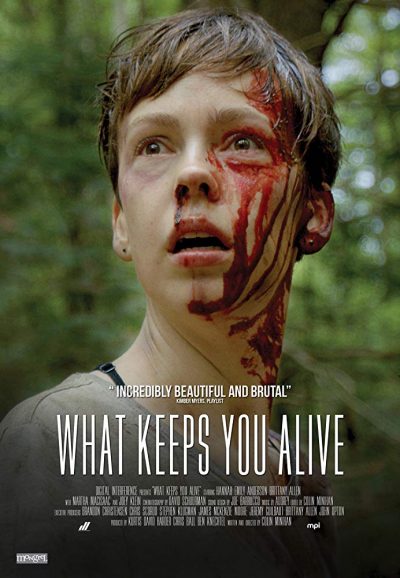
 Ella (Daly) is a shy college student, whose psychology lecturer gives the class an unusual project: break a sexual norm. Unfortunately, Ella is rather confused about the intersection between sex and violence, in part because of genetics, for her father was a serial killer, before abandoning her pregnant mother (Heinrich). As a result, Ella’s attempt to carry out the assignment by auditioning at a strip-club, ends with her slitting the throat of the owner (Ron Jeremy, being appropriately grubby). This awakens the serial killer dormant inside her, and she starts taking out the sleazy men around her. The problem is nice guy Daniel (Andres), whose unwillingness to match her stereotypical opinions of masculinity, triggers further conflicting feelings in Ella, as her acts of murder become increasingly more blatant.
Ella (Daly) is a shy college student, whose psychology lecturer gives the class an unusual project: break a sexual norm. Unfortunately, Ella is rather confused about the intersection between sex and violence, in part because of genetics, for her father was a serial killer, before abandoning her pregnant mother (Heinrich). As a result, Ella’s attempt to carry out the assignment by auditioning at a strip-club, ends with her slitting the throat of the owner (Ron Jeremy, being appropriately grubby). This awakens the serial killer dormant inside her, and she starts taking out the sleazy men around her. The problem is nice guy Daniel (Andres), whose unwillingness to match her stereotypical opinions of masculinity, triggers further conflicting feelings in Ella, as her acts of murder become increasingly more blatant.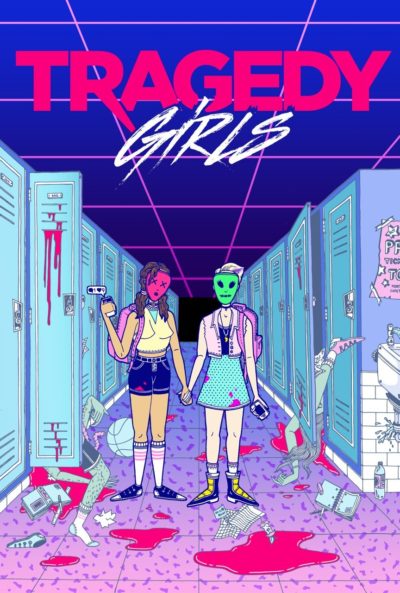 Playing like a more social media-conscious version of Heathers, the central characters are high school girls McKayla (Shipp) and Sadie (Hildebrand). They believe their town of Rosedale is the hunting territory of a serial killer, whom the police won’t acknowledge, and the girls have a (not very successful) blog, Tragedy Girls, about the case. The pair succeed in luring out and capturing the killer (Durand), and discover that if they continue operating in his name, they and their site experiences a rise in popularity.
Playing like a more social media-conscious version of Heathers, the central characters are high school girls McKayla (Shipp) and Sadie (Hildebrand). They believe their town of Rosedale is the hunting territory of a serial killer, whom the police won’t acknowledge, and the girls have a (not very successful) blog, Tragedy Girls, about the case. The pair succeed in luring out and capturing the killer (Durand), and discover that if they continue operating in his name, they and their site experiences a rise in popularity.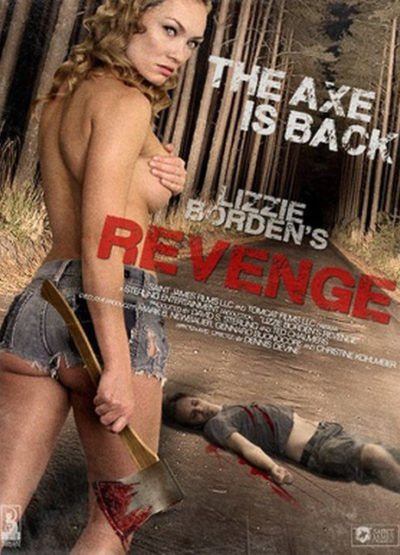 It would, certainly, be easy to look at the poverty-row production values here, and dismiss this contemptuously as a bad film. I mean, the very first shot supposedly sets the scene at the infamous New England house in 1892, where Lizzie Borden took an axe and gave her mother forty whacks. But
It would, certainly, be easy to look at the poverty-row production values here, and dismiss this contemptuously as a bad film. I mean, the very first shot supposedly sets the scene at the infamous New England house in 1892, where Lizzie Borden took an axe and gave her mother forty whacks. But 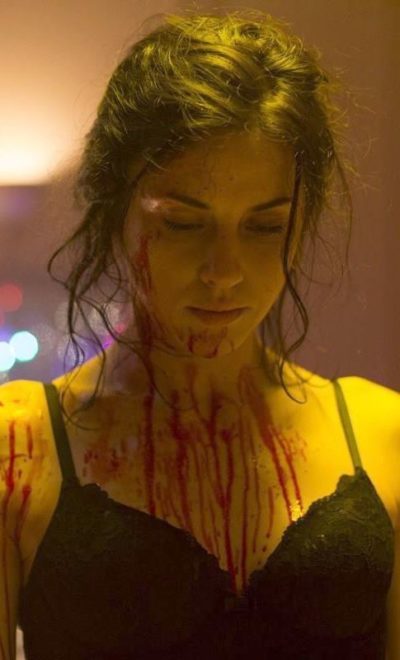 Oh, be afraid… Be
Oh, be afraid… Be 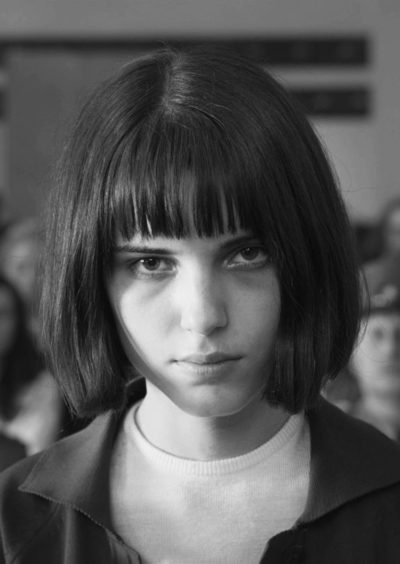 I am a loner. A destroyed woman. A woman destroyed by people… I have a choice – to kill myself or to kill others. I choose TO PAY BACK MY HATERS. It would be too easy to leave this world as an unknown suicide victim. Society is too indifferent, rightly so. My verdict is: I, Olga Hepnarová, the victim of your bestiality, sentence you to death.
I am a loner. A destroyed woman. A woman destroyed by people… I have a choice – to kill myself or to kill others. I choose TO PAY BACK MY HATERS. It would be too easy to leave this world as an unknown suicide victim. Society is too indifferent, rightly so. My verdict is: I, Olga Hepnarová, the victim of your bestiality, sentence you to death.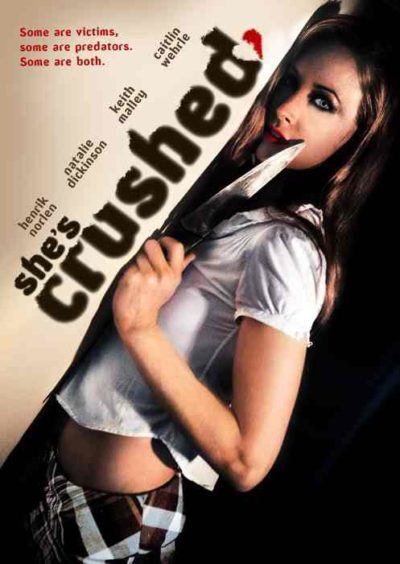 Playing somewhat like a more brutal version of Fatal Attraction, this sees Ray (Norlén) help out the girl next door, Tara (Dickinson) with some heavy suitcases she’s trying to move into her car. From this eventually stems a one-night stand between the pair, made all the more unfortunate by Ray’s girlfriend, Maddy (Wehrle) being stranded by the side of the road with a flat, while the pair do the dirty deed. Ray then discovers Tara’s darker side: and when I say “darker side”, I mean she makes Alex Forrest of Fatal Attraction look like a bunny-boiling beginner. With the aid of a condom from their dangerous liaison, she frames him for the rape/murder of his boss, forcing him to help her get rid of the body. And Tara is only getting warmed up. Wait until she gets her hands on Maddy…
Playing somewhat like a more brutal version of Fatal Attraction, this sees Ray (Norlén) help out the girl next door, Tara (Dickinson) with some heavy suitcases she’s trying to move into her car. From this eventually stems a one-night stand between the pair, made all the more unfortunate by Ray’s girlfriend, Maddy (Wehrle) being stranded by the side of the road with a flat, while the pair do the dirty deed. Ray then discovers Tara’s darker side: and when I say “darker side”, I mean she makes Alex Forrest of Fatal Attraction look like a bunny-boiling beginner. With the aid of a condom from their dangerous liaison, she frames him for the rape/murder of his boss, forcing him to help her get rid of the body. And Tara is only getting warmed up. Wait until she gets her hands on Maddy…